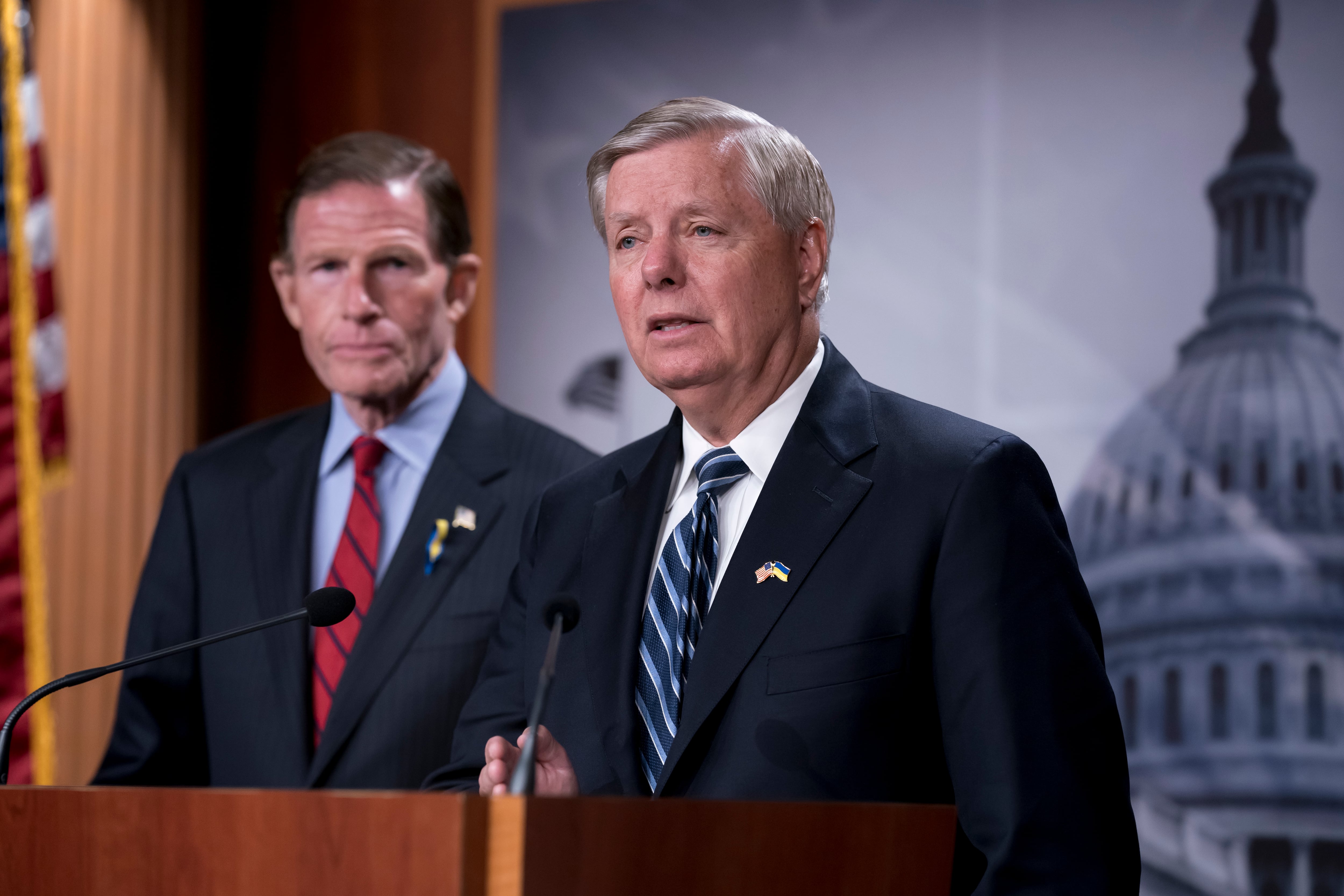The House Veterans’ Affairs Committee has 13 new members and a new chairman this session, but the leader of the panel says he hopes veterans see from the group the same focus on improving veterans benefits that they have in recent years.
“There are going to be contentious issues,” said Rep. Mike Bost, R-Ill., who shifted from ranking member last year to chairman this year after Republicans won a majority of seats in the House. “But the issues that we deal with in the VA committee aren’t about Republicans and Democrats. It’s about the veterans and what they need and what they deserve, what they’ve earned.
“And it’s about making sure that the delivery of those benefits — whether it’s healthcare or the GI bill, the list goes on and on — that they and their family receive those services. So, that doesn’t change.”
Bost, 62, is a Marine Corps veteran who has been on the veterans committee since joining Congress in 2015. He sat down with Military Times this week to talk about his priorities for the committee and goals for the upcoming congressional session.
Portions of the interview have been edited for space and clarity.
Military Times: What are the most important topics you’ll be broaching this year?
Rep. Mike Bost: A lot of it is oversight. Remember, last year, we passed the PACT Act. … We need to make sure that it is implemented exactly the way we passed it. It is a lot of money, but it’s vitally important to do it right.
If you’ll remember, when the PACT Act first came up, I didn’t vote for it because it was not well-suited yet. VA even said “We can’t implement it because you didn’t put the right things in there, you didn’t put the right funding in there.”
We’ve got to make sure that we move forward in a way that no people who are receiving benefits from VA now lose out on their benefits. We’ve got to make sure we provide the health care that we’re providing right now for those vets and then bring in the new ones without losing anybody.
RELATED

MT: VA has already said they expect the claims backlog to go up [due to the PACT Act]. When will you start to worry about the rising cases?
Bost: It starts right away. We’re keeping abreast of that right now. We will monitor it very, very closely.
You add to that, we’re still trying to deal with the electronic health records and the problems there, the dangers that exist for our veterans. We’ve only got [the new records system] in five facilities, and they’re not big facilities. But the wheels came off right at the start.
And we’re still concerned about the Mission Act. Remember, our veterans are not supposed to be on wait lists. There’s no need for them to wait to receive care. They need to be able to get in [to VA medical centers], and if they can’t, they can move to the private sector. We know there are places where that’s still a problem.
MT: How would you characterize your relationship with VA Secretary Denis McDonough and with senior staff?
Bost: My relationship with the secretary is very good. His former boss [President Barack Obama] and I served together in the Illinois General Assembly. [McDonough] was his chief of staff.
That doesn’t mean we always agree. There’s a whole list of things where we don’t. But I can say that if something is going to happen that I probably won’t agree with, he will call me in advance. That makes for a very good working relationship.
RELATED

MT: You’ve already introduced legislation regarding concerns with the new VA electronic health records system. Where are you on that program right now?
Bost: Here’s the thing your readers need to understand: Congress never voted for that. That was a decision made by the previous administration and carried on by this administration. And the failure started as soon as they started working with Cerner.
I’ve been to every location where the program is trying to be rolled out. Some in the administration, when it first rolled out, they tried to put lipstick on a pig. But they’ve finally come into the realization that there are problems.
There are big problems. We don’t want to waste taxpayers money, but we also don’t want to go down a path where we waste more taxpayers money. …
MT: Let me ask you about another controversy that will come up with this session: abortion. What is your plan to deal with that issue in the coming months,
Bost: I sent a letter already to the secretary asking for specific information on this. In 1992, a law was passed that said VA would not provide abortion. Now, the secretary and his attorneys are using a 2006 law that really doesn’t have anything to do with abortion to provide those services. That has to be settled in the courts.
But we still have oversight. If they’re going to start doing a procedure or procedures that can be controversial at best, we have our oversight positions. That’s why I’ve sent a letter [requesting more information].
I don’t want to know specific names. That’s none of my business, none of our business as committees. But what procedures are you performing? How many are you performing? Is it the morning after pill? Is it late-term abortions?
[This policy] allows for very, very broad opportunities to provide abortions. If they want to go down that path, then it should be decided by the legislature.
MT: You’ve had a lot of turnover on the committee, but you also added several more veterans. How do you think that’s going to affect some of the conversation on the committee?
Bost: Of our five subcommittee chairs, four of them are veterans, and veterans with all kinds of backgrounds. We have veterans that were doctors, veterans that were enlisted and officers. And we’ve got one veteran — Rep. Jack Bergman — that’s been on the committee forever with me, and he’s a great friend.
Those veterans, you better believe, they’re passionate about making sure that VA is providing the services veterans need. And many of them have been in a situation where they tried to get the services and they didn’t get the quality they wanted. Their passion for helping veterans is just amazing.
Leo covers Congress, Veterans Affairs and the White House for Military Times. He has covered Washington, D.C. since 2004, focusing on military personnel and veterans policies. His work has earned numerous honors, including a 2009 Polk award, a 2010 National Headliner Award, the IAVA Leadership in Journalism award and the VFW News Media award.









